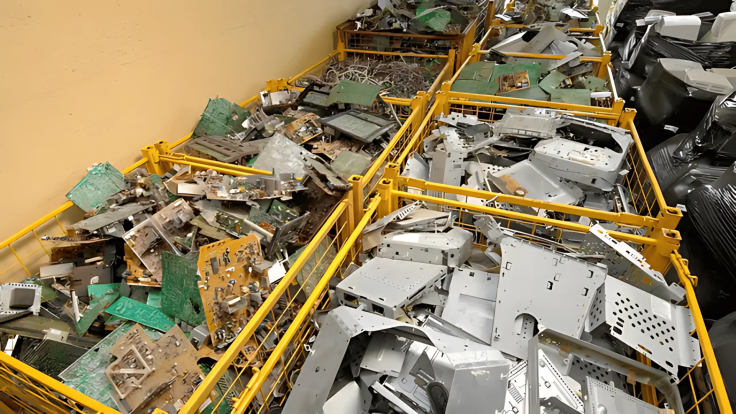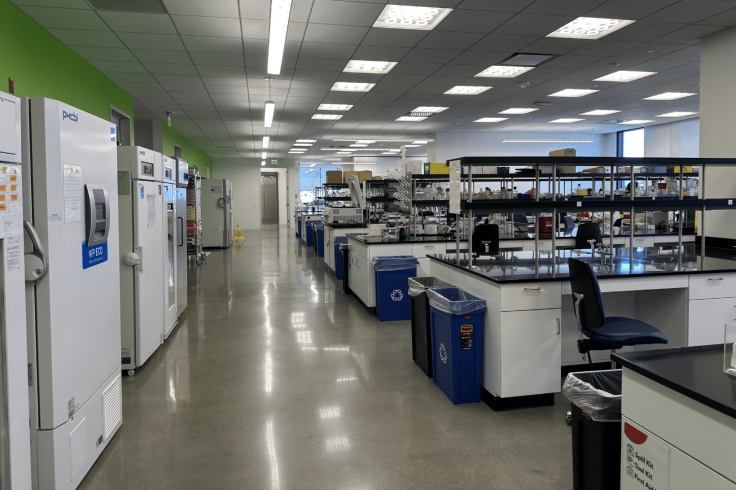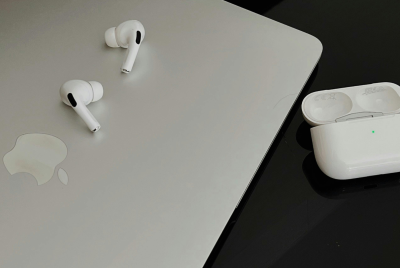Inside the $91B E-Waste Crisis: Why Zhining Zhao Wants to Rebuild American Industry From Trash
Zhining Zhao's AI micro-factories aim to replace dangerous overseas e-waste dismantling, recover critical minerals locally and cut foreign dependence

As the production of electronic devices continues to grow, so does the demand for the minerals required to make them. However, countries like the US depend heavily on foreign supply chains to get these materials. And once used, many of these devices are then shipped out once again, this time as waste, where they're dismantled under often unsafe environmental and labour conditions.
This setup not only harms local environments and communities abroad but also keeps the US reliant on outside sources for materials that are critical across different industries, from consumer electronics and electric vehicles to batteries and defence systems.
Zhining Zhao, co-founder and CEO of Andean Inc., is working on a different approach. His company is building modular, AI-powered micro-factories that can break down electronic waste and recover valuable materials directly from landfills — without needing human labour. For Zhao, the future of US industry depends on developing practical tools that are efficient, local, and safe.
Zhining Zhao: A Perspective Forged by Resistance

Growing up in China, Zhao was used to pushing back against conventional narratives early on. As a student, he founded an independent publication that encouraged peers to critically examine the way that history and politics were being taught — an effort that quickly drew administrative backlash and eventually led to his expulsion.
Despite considering the experience as a setback at the time, it led Zhao to reflect more deeply on how systems of control and value operate. After relocating to the United States, he enrolled at Carnegie Mellon University to continue that exploration. He began in philosophy with the intent of exploring the logic behind these questions, but eventually shifted to researching robotics in search of more applied ways to address large-scale structural challenges.
The move marked a transition from abstract thinking to practical problem-solving, driven by the belief that technology could be used to engage with real-world issues at scale.
As AI gained wider popularity across different industries, Zhao recognised an opportunity to build something more meaningful than iterative tools. 'I was deep in meditation one day,' he recalls, 'and I realised that the day to build a start-up was today, and all I had to do was begin. I couldn't push it back any further.'
How Andean Improves the Landfill Bottleneck
In 2025, Zhao co-founded Andean Inc., a company that uses AI to tackle the growing landfill pressure and the inefficiencies surrounding electronic waste processing — a problem that particularly affects large countries like the US, which produce high volumes of devices made with imported minerals like lithium, cobalt, and gallium.
In 2024 alone, the US imported over 80% of its critical metals despite generating 6.8 million tons of e-waste — an estimated $91 billion (globally, 9-10 billion in the USA) in recoverable materials. Nearly half of that waste is shipped to low-income countries, where metals are often extracted under unsafe and loosely regulated conditions. At the same time, less than 1% of the material ever makes it back into the US manufacturing ecosystem, further feeding into a cycle of dependence on other providers and missing major opportunities to recover and recycle limited resources.

Andean Inc. is building a practical alternative: a domestic, sustainable, and end-to-end system for extracting critical materials from electronic waste directly from landfill sites.
The company focuses on building compact, autonomous micro-factories designed to operate in urban environments. Each unit uses advanced vision-language models trained on proprietary datasets to visually identify a wide range of devices, components, and metals. Once identified, the devices move through a robotic handling system that carefully disassembles them and extracts valuable materials, which then go through chemical processing methods that isolate and refine these elements for reuse.
The result, according to the company, is a faster, safer method for recovering materials, up to 90% more efficient than conventional approaches — all without exposing workers to dangerous conditions. And unlike other one-size-fits-all solutions, the system is built with a modular design, which gives clients the flexibility to adapt it to their specific operations.
To build this vision, Zhao brought together a team of engineers and researchers from institutions like Carnegie Mellon and Stanford. Their shared goal is to turn their years of academic research into solutions that work in practice, turning lab insights into field-ready technology built for real-world industrial problems.
'We've seen too many situations around the world where entire, often impoverished communities suffer from severe health problems and low life expectancy because of destructive downstream processes,' says Zhao. 'One of the biggest goals of our operation is to make sure that no human will have to be put in the hazardous situation of handling electronic waste again.'
By automating the most complex and dangerous parts of e-waste processing, Andean is lowering the barriers to domestic mineral recovery while offering a scalable alternative to the long-standing practice of outsourcing risk.
Charting the Future of Material Infrastructure
By building autonomous systems that reclaim materials directly from waste streams, Zhining Zhao aims to onshore a new manufacturing economy that is less dependent on foreign supply and more resilient to disruption. With Andean, he's proposing a new framework for material infrastructure — one that prioritises local processing, efficient recovery, and real-world viability.
© Copyright IBTimes 2025. All rights reserved.





















